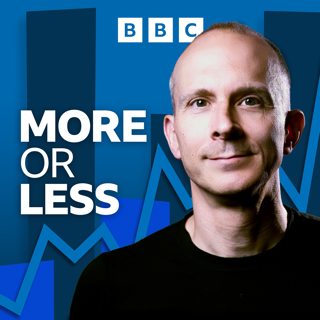
Is coffee bad for you?
People who drink more than 4 cups of coffee increase their chances of dying by 50%, it was reported recently. Given everyone’s chance of dying is already 100%, this seems a puzzle. What does the research really say, and how reliable are the findings? Plus, Ruth Alexander interviews economist and Expecting Better author Emily Oster, who used her statistical training to assess the evidence for herself on what effect coffee, alcohol and certain foods have on pregnant women. This programme was first broadcast on the BBC World Service.
24 Elo 20139min

The magic of maths
Tim Harford speaks to Persi Diaconis, top professor of maths and statistics and legendary magician. The Stanford University professor and co-author of the book "Magical Mathematics" has an enthralling story to tell of how he discovered magic as a boy, and then, as a consequence, a love of maths. And to illustrate how closely maths and magic are linked, Crossing Continents editor and the BBC's in-house magician, Hugh Levinson, performs a mathemagical card trick - see the performance below. This programme was broadcast on the BBC World Service. The interview was recorded in 2011.
17 Elo 20139min

Where could we fit the entire world’s population?
If all the world’s population crowded together, where could we all fit? London? Texas? More or Less figures it out, and separates fact from fiction. And, as the soccer season returns, is it possible to measure the effectiveness of a team’s manager? We hear from David Sally, author of The Numbers Game. This programme was first broadcast on the BBC World Service.
10 Elo 20139min

What is the most visited country in the world?
This week we find out what the most visited country in the world is and ask why aren’t they capitalising financially as well as their rivals. Plus we also investigate the complex - and often controversial - web of international extradition treaties. The programme hears from extradition lawyer Anand Doobay, from Peters and Peters, and Ted Bromund, a senior research fellow in Anglo-American relations in Washington DC. This programme was first broadcast on the BBC World Service.
3 Elo 20139min

Chris Froome's Tour de France victory
The winner of this year's Tour de France, British rider Chris Froome, faced numerous questions about doping during the course of his victory. More or Less assesses his performance stats, and asks whether maths can measure whether cycling really has cleaned up its act and whether Froome is simply a victim of the ghosts of cycling's past. Dr Ross Tucker from The Science of Sport website gives us his views and we hear from physiologist Fred Grappe - the only man to see Froome's tour data. This programme was first broadcast on the BBC World Service.
27 Heinä 20139min

Egypt: Biggest protest in history?
It’s claimed that Egyptians have taken part in the biggest uprising the world has ever seen. The nationwide demonstrations, which were followed by the removal of the president by the army, were certainly a massive show of people power. But were the crowds really as large as reported? Ruth Alexander assesses the evidence, and finds out why it is so difficult to count a crowd. This programme was first broadcast on the BBC World Service.
13 Heinä 20139min

Sex and the world wide web
The world of porn is often exaggerated but does it really make up 37% of the web? And after some high profile cases we ask whether the American football league has a crime problem? This edition was first broadcast on the BBC World Service.
6 Heinä 20139min

How long will you live?
Life expectancy at birth around the world has increased by six years in the past two decades. But can this striking trend continue? Ruth Alexander looks at the data. This edition was first broadcast on the BBC World Service.
29 Kesä 20139min





















